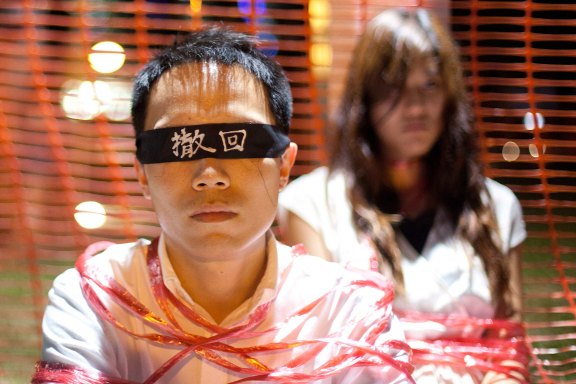There have been a couple of related news events recently that are quite interesting. A few days ago media in Malaysia reported that a new history curriculum is being developed for high schools that will get students to learn “the rudiments of patriotism and loyalty.”
Deputy Prime Minister Tan Sri Muhyiddin Yassin stated that, “The government is drafting a new curriculum particularly for secondary students based on recommendations by the special committee studying the History syllabus and textbooks.”
That special committee was established in 2011 following allegations that the history that was being taught in Malaysian schools was “biased and inaccurate.”
Not only is a new curriculum being developed, but history is being made a compulsory topic for secondary school students. The deputy prime minister commented on this point that,
“The era of thinking that anyone can teach history and of regarding it as a sideline subject has passed.
“We want history to be given a breath of fresh air and serious attention to ensure it is taught by teachers with expertise and deep knowledge.”
And why do certain people in Malaysia want to give history “a breath of fresh air”? So that “the spirit of unity and patriotism could be fostered among the younger generation.” That apparently is what makes history “accurate” and not “biased.”
Meanwhile, a day ago in Hong Kong tens of thousands of young people protested plans to implement a similar curriculum. Some of these protestors have covered their eyes and tied themselves up to symbolize the way that such forced views of the past simply blind and limit people rather than educate them.
At a “Globalising Higher Education in Malaysia” conference in 2006, plans were announced to make Malaysia an international hub for higher education by 2010 (did it work?), to raise the capacity for knowledge and innovation, and to nurture a “first class mentality.”
I’m not sure what a “first class mentality” is, and a report I looked at to find out more only contains this term in its title. It doesn’t explain what it is (see here). However, whatever it is, I definitely doubt that it can be created by the current plans to change the history curriculum.
Patriotism may be an important ideology to promote during the early stages of the nation building process, but eventually it loses its relevance. The world we live in is too complex to examine through the simplistic lens of patriotism. And it is too wasteful of human potential to not expose young people to the complexities of their own country’s past when they are still in high school.
Some governments, I guess, fear that if students have an accurate understanding of history, that they will oppose the government or betray the country. That is ridiculous.
If students are provided with a more accurate picture of the past, they will come to appreciate how complex issues were in the past. And with this knowledge, they will be better able to appreciate how complex the issues that governments and nations face in the present are as well.
In our current interconnected and information-filled world, dealing with complexity is what it is all about. Teaching patriotic versions of history eliminates the complexity from the past. And that ultimately destroys hope for the future.
Instead of producing people who have the intellectual skills to come up with innovative solutions, patriotic education produces too many people who just repeat the simplistic information they were taught, such as the victim narratives that I discussed here.
Victim narratives might help create a sense of legitimacy, but they do nothing to solve any of the complex issues we face. Only people with a “first class mentality” can solve complex problems, and patriotic education does not produce such people.



This Post Has 2 Comments
For those who are interested in knowing more about these issues in Malaysia, this book might be useful.
Kee Thuan Chye (2012). No more bullshit, please, we’re all Malaysians. Singapore: Marshall Cavendish Editions.
Hmmm, the title and place of publication are. . . interesting. . .